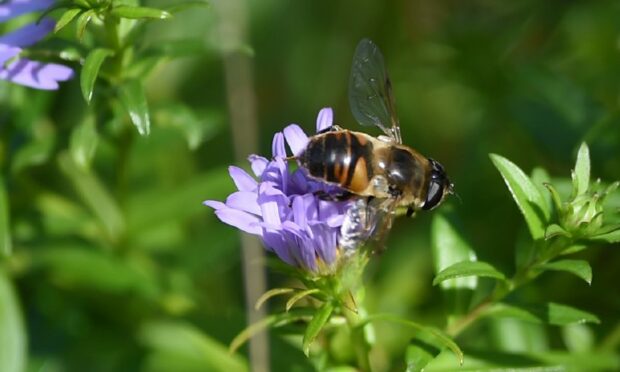Sir,– The rhetoric on global warming is heating up in the run-up to the Glasgow climate summit. We are told almost daily that renewables will save the planet, but several years ago numerous scientific studies stated millions of birds and bats are killed annually by wind turbine blades.
Now my attention has been drawn to a study by Christian Voigt published in January. He estimates 1.2 trillion insects are killed by German onshore wind turbines annually. The indirect effect of this will be fewer insects for birds and bats to eat, and reduced pollination of plants. It seems we have to destroy the planet to save the planet.
Geoff Moore, Braeface Park, Alness.
Land ownership needs wide debate
Sir, – I read with some concern Andrew Dingwall Fordyce’s comments (Letters, October 18).
In his initial paragraphs he appears to take exception not to David Ross’s views but to the fact The P&J published them. He seems to suggest any opinions contrary to his own should not be voiced.
It is our good fortune to have in this country a free press where contrary views can be expressed without fear of censorship.
Regular readers will have noted Mr Dingwall Fordyce makes good use of the columns of The P&J to express his own views, unfashionable though they may be. It is important landowners’ views are published and I would dispute the accuracy of Mr Dingwall Fordyce’s statements – in particular, his idea much of Scotland is a wilderness only, to be managed in enormous blocks in view of the alleged economies of scale this brings.
Sadly, this contention sees land simply as a commodity to be used for making money and not as a wonderful resource with huge, untapped potential in the battle to halt climate change and to improve the quality of life for all Scots in the years to come.
Mr Dingwall Fordyce accuses Mr Ross of using history from more than 200 years ago to support community ownership, as against private landowners.
Having read Mr Ross’s interesting and well-turned article more than once I see references to relevant events in 1926 and 2019 – 95 and two years ago respectively. I do not understand where Mr Dingwall Fordyce gets his figure of 200 years from.
Private land ownership and the benefits of community ownership are too important to be left exclusively in the hands of the relatively small group of people who own so much of our country.
Colin D Young, Newtonhill, Aberdeenshire.
Leave B&Bs out of licensing rules
Sir, – I agree with much of what your reader said last week in his letter headed “Short-term lets are long term problem”. But I believe clarifications are needed.
The definition of short-term lets in the proposed legislation is too wide. I agree many of the local housing problems are caused by “secondary lets” – self-catering lets where the property owner does not live on the site. Unfortunately small B&Bs and self-catering lets where the owner lives on the property are also caught up in proposed Licensing of Short-term Lets legislation.
Housing Minister Shona Robison’s announcement of proposed changes are welcome but make it even more ridiculous these types of tourism accommodation are still included.
If licensing must go ahead it should only include “secondary lets”.
The other matter affecting housing availability and the vibrancy of local communities is the increase in second home ownership.
This proposed legislation will do nothing to control this and is yet another example of muddled and inept thinking by our Scottish Government.
Gordon Bulloch, The Dulaig B&B, Seafield Avenue, Grantown.
